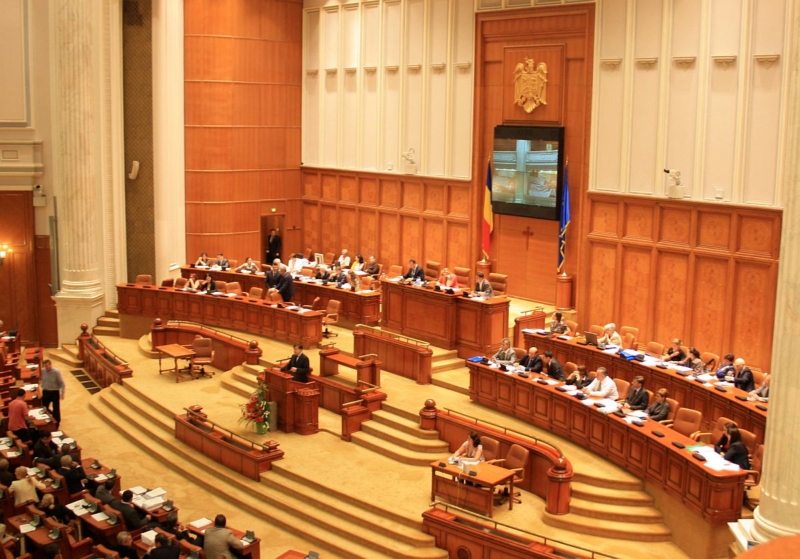How many unconstitutionality rulings do you need in order to respect our privacy?
These days Romania is going through an absurd competition between the state – that keeps imposing laws designed to give it complete control over the citizens’ communications – and the justice system, that can’t stop ruling these laws unconstitutional. The signatories of this document are welcoming the Romanian Constitutional Court’s latest decision, which rules the so called “Big Brother” law to be unconstitutional, as well as the Ombudsman decision to notify the Constitutional Court on the matter of the unconstitutionality of the law requiring the registration of all prepaid SIM cards, and are asking the Members of the Parliament to overcome their weaknesses dealing with the intelligence services and focus their efforts towards legislating in the interest of the public and respecting fundamental human rights.
We consider that after two unconstitutionality rulings, and an invalidation at the European level, during the last 5 years on the same issue, the Parliament, the Government and the intelligence services should understand that their goals are infringing on the fundamental rights of the citizens.
Some history:
- Communication, location and identification data retention by the communication service providers generated ample controversy ever since the introduction of the 2006/24/UE European Directive. In Romania, the first law (law no.298/2008) that attempted to implement the directive was ruled unconstitutional. The Constitutional Court of Romania (CCR) based their argumentation, primarily, on the fact that data retention infringes on the right to privacy by imposing the obligation to, indiscriminately, retain personally identifiable information on all citizens using communication services.
- In 2012, a new data retention law (law no. 82/2012) was adopted by the Romanian Parliament. This too was ruled unconstitutional by the CCR a couple of days ago. Unanimously. The Court found the provisions of the data retention law to be unconstitutional.
- The European Directive concerning data retention was invalidated as well in April 2014 by the European Court of Justice (ECJ). This paved the way for the European Union Member States that implemented the directive to repeal the laws implementing it. Instead of taking advantage of this and repealing law no.82/2012, the Romanian Parliament went the other way by adopting, using the emergency procedure, the law on the Government’s Executive Order no.111/2011, which implements yet another abusive measure: registering all prepaid SIM card users and all WiFi hotspot users. On top of that, we have serious reasons to expect the same kind of legislative speed when it comes to the cybersecurity law that is just a few votes away from beng adopted.
- The civil society notified each time the Ombudsman, the presidents of both chambers of the Parliament and the President of Romania of the unconstitutionality of these initiatives. At the eleventh hour, the Ombudsman took note of the unconstitutionality of the prepaid SIM card registration law and notified the CCR. “The Ombudsman considers that the Law for the modification and completion of the Emergency Executive Order of the Government no.111/2011 concerning electronic communications infringes on the principle of guaranteeing and protecting privacy by the public authorities and the principle of proportionality expressly stipulated by art. 53 alin, (2) of The Constitution.”
In conclusion, the signatories are welcoming the prompt answers of the CCR and the Ombudsman to the issues raised by the civil society, and appreciate the fact that the two institutions are keeping a check on the constitutional misadventures of the legislative. We are trusting the CCR to rule the law of SIM card and WiFi registration to be unconstitutional during the 16 September 2014 session, when it will analyze the Ombudsman’s notification.
We are appealing to the Parliament and the Government to focus their efforts to improve the nation’s fortunes on economic development, not on restricting fundamental freedoms.
Signatories:
Maria-Nicoleta Andreescu, Asociația pentru Apărarea Drepturilor Omului în România – Comitetul Helsinki (APADOR-CH)
Bogdan Manolea, Asociaţia pentru Tehnologie şi Internet (ApTI)
Mircea Toma, ActiveWatch
Ioana Avădani, Centrul pentru Jurnalism Independent (CJI)
Ștefan Cândea, Centrul Român pentru Jurnalism de Investigație (CRJI)
Vasile Crăciunescu, Geo-spatial.org
Tiberiu Turbureanu, Fundația Ceata
Oana Preda, Centrul de Resurse pentru Participare Publică
Mihail Bumbeș, Miliția Spirituală
Toma Pătrașcu, Asociația Secular Umanistă din România (ASUR)
Gabriel Petrescu, Director Executiv, Fundația pentru o Societate Deschisă



